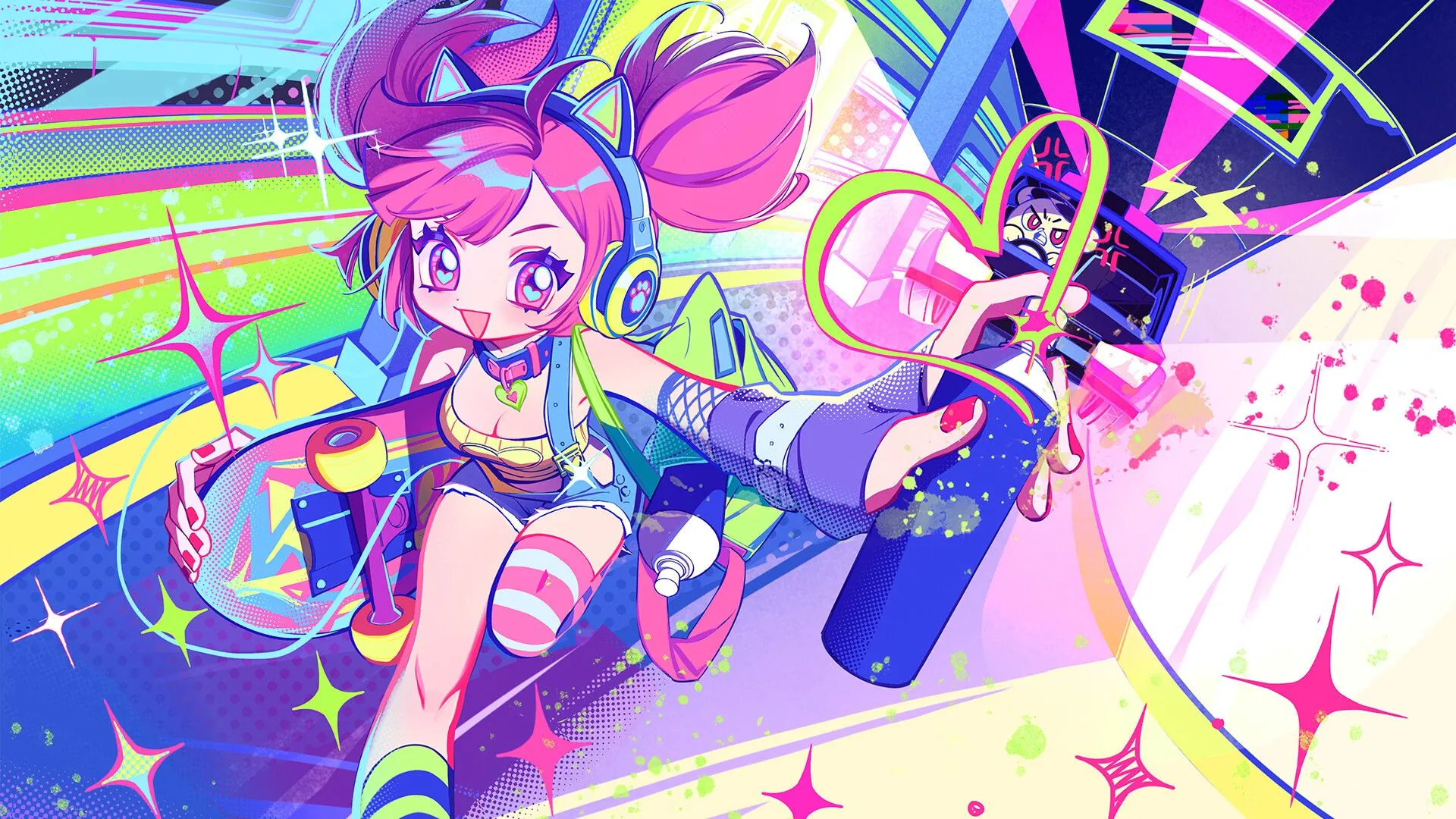
Heart Problems
Play Heart Problems
Heart Problems review
Exploring the narrative depth and emotional impact of this unique visual novel
If you’ve heard about the ‘Heart Problems’ visual novel and are curious what makes it stand out, you’re not alone. This game takes a sensitive, character-driven approach to storytelling, focusing on the challenges and growth of a protagonist living with a heart condition. Unlike typical visual novels, it avoids sensationalism, instead offering a thoughtful exploration of relationships, self-discovery, and resilience. In this article, we’ll dive into the game’s narrative, its memorable characters, and why it resonates with players seeking meaningful, relatable stories.
Story and Setting: What Makes ‘Heart Problems’ Unique?
A Day in the Life: The Protagonist’s Journey
Waking up each morning isn’t just about turning off an alarm for the protagonist of Heart Problems. It’s a ritual of checking in with their own body, a quiet moment of assessment before facing the world. 🫀 This heart problems visual novel story begins not with epic fantasy, but with the profound reality of a high school student managing a chronic health condition. The game masterfully puts you in the shoes of a protagonist with heart condition, making you feel the weight and nuance of their daily experience.
I remember playing one scene early on where the main character has to consciously slow their breathing while climbing a flight of stairs at school, mentally calculating the exertion. It wasn’t a dramatic, cinematic moment—it was a quiet, relatable struggle. This is the core of the emotional storytelling in games that Heart Problems excels at: finding profound meaning in ordinary moments. The narrative doesn’t use the health condition as a cheap plot device; instead, it explores how this reality shapes every decision, interaction, and personal goal.
The character development in visual novels is often measured in dramatic arcs, but here it’s shown through subtle, cumulative growth. You’re not just choosing dialogue options; you’re making lifestyle choices. Do you push yourself to join the school festival committee, knowing the stress might trigger symptoms? Or do you listen to your body’s limits, even if it means missing out? These decisions shape your relationships and your protagonist’s self-understanding. It’s a powerful, empathetic form of storytelling that stays with you long after you’ve put the controller down. 💭
One particularly memorable example occurs during a seemingly typical school day. The protagonist is heading to class when they feel a familiar, unsettling flutter in their chest. The screen subtly blurs at the edges, the background noise muffles, and a soft, quickening heartbeat sound design takes over. A classmate notices you’ve paused in the hallway and stops to ask if you’re okay.
The game presents you with choices that are painfully real: Do you brush it off with a “I’m fine,” downplaying the situation to avoid attention or worry? Do you honestly say, “I just need a minute,” risking pity or awkwardness? Or do you use humor to deflect, a common coping mechanism?
This scene is a masterclass in the realistic portrayal of health issues. There’s no melodrama, just the authentic dilemma of managing a moment of vulnerability in a public space. The classmate’s reaction isn’t scripted to be overly heroic or cruel; it’s human. They might be unsure how to help, offer to walk with you to the nurse, or simply accept your answer and move on. This moment isn’t about advancing a romantic plot; it’s about illustrating the daily dance of communication and self-advocacy. It perfectly captures the game’s commitment to emotional truth over sensationalism. 🎭
School Life and Relationships: More Than Romance
While many school life visual novel games use the setting as a simple stage for romance, Heart Problems uses the high school environment as a rich ecosystem for exploring human connection in all its forms. 🤝 Your classmates aren’t just potential love interests; they’re a complex web of friends, mentors, rivals, and acquaintances, each with their own struggles and perspectives. The relationships you build are the cornerstone of the heart problems visual novel story, providing both support and challenge.
The game brilliantly shows how the protagonist with heart condition navigates social dynamics. Some friends become overly protective, treating you as fragile. Others might initially distance themselves, unsure how to act. A key part of the character development in visual novels here is learning to set boundaries and educate others without resentment. In one of my playthroughs, I had a heartfelt conversation with the “sports fanatic” character, where my protagonist explained that they couldn’t join the running club, but would love to help manage it. This led to one of the most rewarding friendship arcs in the game, built on mutual understanding rather than pity.
The emotional storytelling in games shines in these platonic relationships. A study session where a friend quietly makes sure the room isn’t too crowded or stressful, or a library companion who learns to recognize the signs of your fatigue, carries more weight than many dramatic confessions of love in other games. This school life visual novel understands that high school is about finding your tribe—the people who see all of you, including your challenges, and choose to stand by you.
The game’s approach to connection can be summarized by how it contrasts with more traditional narratives:
| Traditional School Visual Novel | “Heart Problems” Visual Novel |
|---|---|
| Relationships focused primarily on romance | Relationships explore friendship, mentorship, and community |
| Conflict is often external and dramatic | Conflict is internal and interpersonal, rooted in communication |
| Character arcs are about achieving a goal (winning a competition, confessing love) | Character arcs are about understanding and acceptance |
| The school is a backdrop for events | The school is an active environment that the protagonist must learn to navigate with their condition |
Themes of Health, Acceptance, and Growth
At its core, Heart Problems is a powerful exploration of the themes of acceptance and growth. This isn’t a story about “overcoming” a health condition in a triumphant, Hollywood sense. 🏆 It’s a much more authentic and courageous narrative about learning to live a full, meaningful life with it. The realistic portrayal of health issues serves as the foundation for this exploration, refusing to offer easy answers or miracle cures.
The game beautifully dismantles the idea that acceptance means giving up. Instead, it frames acceptance as a superpower—the clarity that comes from truly understanding your own limits and strengths. The protagonist with heart condition doesn’t just learn to manage their physical health; they undergo a profound character development in visual novels by redefining their self-worth outside of societal expectations of “productivity” or “normalcy.” They learn that it’s okay to rest, to say no, and to value quiet moments of connection over constant activity.
This journey is reflected in the game’s mechanics. Your “health meter” isn’t a thing to be maximized but a resource to be managed wisely. Making choices that prioritize your well-being often unlocks deeper, more meaningful story branches and conversations. The heart problems visual novel story rewards self-care and honesty, teaching a valuable lesson through its interactive design. It’s a brilliant example of emotional storytelling in games, where the gameplay itself reinforces the central themes.
The themes of acceptance and growth extend beyond the protagonist to the people around them. You witness classmates, teachers, and family members on their own journeys of understanding. They make mistakes, learn, and grow, showing that acceptance is a collaborative process. This makes the school life visual novel setting so effective—it’s a microcosm of the wider world, where education and empathy can transform relationships.
“I’ve lived with a chronic illness since I was a kid, and I’ve never felt so seen by a game. Playing ‘Heart Problems’ was like reading pages from my own teenage diary. It didn’t offer solutions, but it gave me a new language for my experience and made me feel less alone. That’s a gift I didn’t know I needed.”
This player’s words capture the unique impact of this heart problems visual novel story. It’s more than entertainment; it’s a mirror for those who see their own struggles reflected and a window for others to build understanding. By focusing on emotional storytelling in games and a realistic portrayal of health issues, Heart Problems creates a space for genuine connection, making it a truly unforgettable entry in the world of interactive narrative. ❤️
The ‘Heart Problems’ visual novel stands out for its heartfelt storytelling, relatable characters, and thoughtful handling of sensitive themes. It’s a game that invites players to reflect on their own experiences with health, friendship, and personal growth. Whether you’re drawn to emotional narratives or simply curious about a different kind of visual novel, this game offers a memorable journey. If you’re ready to explore a story that’s as meaningful as it is engaging, give ‘Heart Problems’ a try—and see which path resonates with you the most.





















